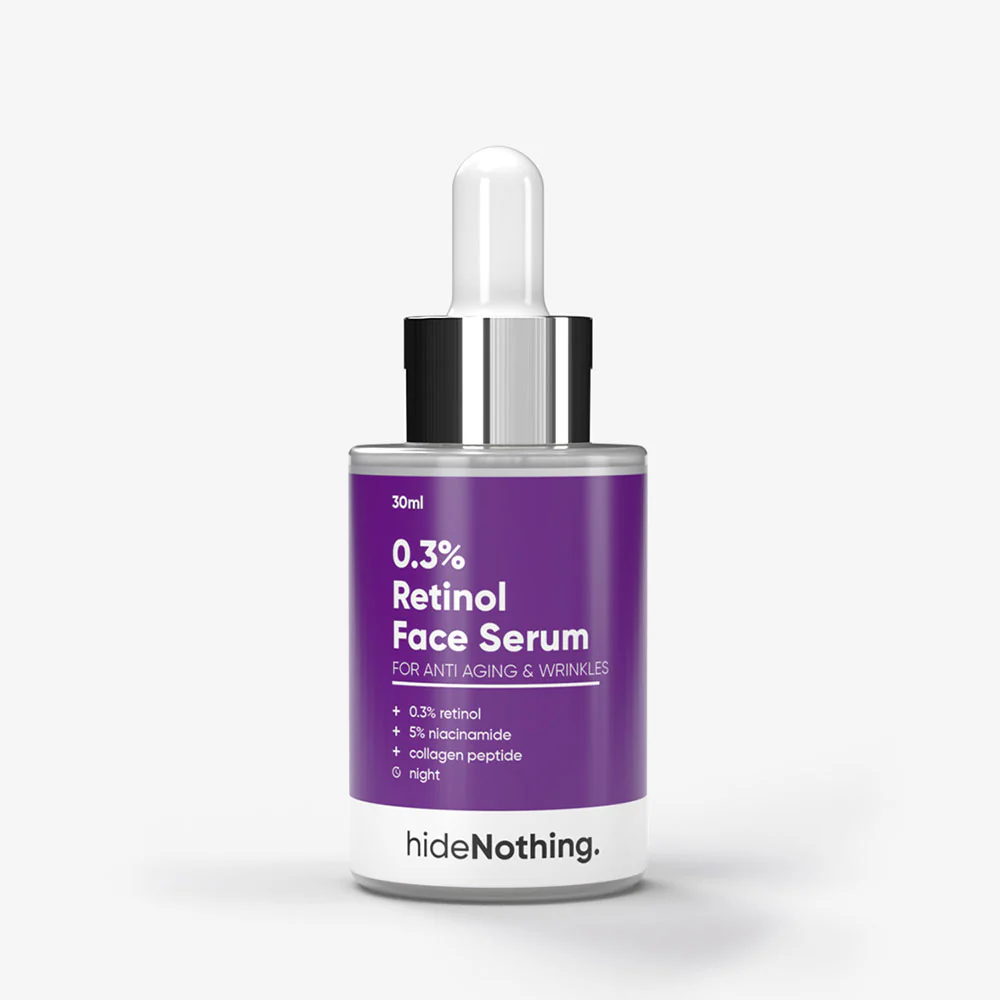Retinol serums are a staple in many skincare retinol serum routines, renowned for their powerful anti-aging and skin-smoothing benefits. But as effective as retinol can be, using it correctly is essential to maximize its benefits while avoiding potential skin irritation. In this guide, we’ll walk you through the dos, don’ts, and everything you need to know about retinol serums to achieve glowing, youthful skin.
What is Retinol, and Why Use It?
Retinol, a derivative of Vitamin A, is highly valued in skincare for its ability to speed up cell turnover and promote collagen production. This means it can help reduce fine lines, minimize pores, and improve skin texture, making it a go-to ingredient for anti-aging. Additionally, retinol can aid in controlling acne by keeping pores clear and reducing excess oil production.
However, because of its strength, it’s important to learn the best practices for using retinol to avoid skin irritation and get the most out of this powerhouse ingredient.
The Dos of Using Retinol Serum
- Start Slow
Begin with a low concentration of retinol (typically around 0.25% to 0.5%) and use it only once or twice a week. As your skin builds tolerance, you can gradually increase the frequency and potency. - Apply at Night
Retinol makes your skin more sensitive to the sun, so it’s best used in your nighttime routine. This also gives the product time to work undisturbed by external factors like sunlight. - Use Sunscreen Daily
Because retinol can increase your skin’s sensitivity to UV rays, daily sunscreen is non-negotiable. Opt for a broad-spectrum SPF of at least 30, even on cloudy days. - Moisturize Generously
Retinol can dry out your skin, especially during the first few weeks. Using a rich moisturizer after applying retinol can help prevent dryness, flakiness, and irritation. - Listen to Your Skin
If you notice excessive redness, peeling, or discomfort, reduce the frequency of application. Everyone’s skin is different, and adjusting the routine to match your tolerance level is key.
The Don’ts of Using Retinol Serum
- Don’t Overdo It
Retinol is powerful, but more isn’t always better. Overuse can lead to redness, irritation, and even breakouts. Stick to the recommended amount (a pea-sized amount is usually sufficient) and frequency. - Avoid Mixing with Certain Actives
Retinol doesn’t always play well with other active ingredients like Vitamin C, benzoyl peroxide, and AHAs/BHAs. Using them together can lead to irritation. If you want to use both, consider applying one in the morning and the other at night. - Don’t Use on Damp Skin
Applying retinol on damp skin can increase its retinol serum in Pakistan absorption, which might sound good but can actually lead to more irritation. Make sure your skin is completely dry before application. - Skip Sensitive Areas
Avoid applying retinol too close to sensitive areas like your eyes, nose, and mouth, where the skin is thinner and more prone to irritation. - Don’t Rush Results
Retinol takes time to work—typically a few weeks to a couple of months before you start seeing visible changes. Patience is key when it comes to reaping the long-term benefits of retinol.
Potential Side Effects of Retinol and How to Manage Them
It’s normal to experience some minor side effects, especially in the beginning, as your skin adjusts to retinol. Here are common issues and tips on how to handle them:
- Dryness and Peeling: Use a hydrating serum or moisturizer to keep your skin barrier intact. Ingredients like hyaluronic acid or ceramides can be especially helpful.
- Redness and Irritation: Try spacing out retinol applications to allow your skin to adapt. If irritation persists, consider switching to a lower concentration.
- Increased Sensitivity to Sun: Always wear sunscreen and consider hats or other physical barriers to protect your skin when outdoors.
If you experience severe irritation, discontinue use and consult a dermatologist.
How to Incorporate Retinol into Your Routine
Here’s a step-by-step guide to help you add retinol into your nightly skincare routine effectively:
- Cleanser: Start with a gentle cleanser to remove makeup, dirt, and oil. Avoid exfoliating or deep-cleansing products before applying retinol.
- Toner (Optional): Use a hydrating toner if desired, but avoid any astringent or exfoliating toners, as they can make retinol more irritating.
- Retinol Serum: Apply a pea-sized amount of retinol serum on dry skin, avoiding the sensitive areas around your eyes, nose, and mouth.
- Moisturizer: Follow up with a nourishing moisturizer to lock in hydration and prevent dryness.
- Sunscreen (Morning Only): In your morning routine, apply sunscreen as the final step to protect your skin from the sun’s harmful rays.
Alternatives to Retinol for Sensitive Skin
If your skin is particularly sensitive, you might want to try gentler alternatives:
- Bakuchiol: A plant-based ingredient known to provide retinol-like benefits without the potential irritation.
- Peptides: These amino acids can help boost collagen production and improve skin elasticity without the harshness of retinol.
- Niacinamide: Known for its anti-inflammatory properties, niacinamide can brighten and smooth skin without causing dryness or sensitivity.
These alternatives can be a great option for sensitive skin or for those looking to avoid potential side effects altogether. https://businespoint.com/
FAQs
Q1: Can I use retinol if I have acne-prone skin?
A: Yes, retinol can actually be beneficial for acne-prone skin. It helps prevent clogged pores and can reduce acne over time. Start with a low concentration to avoid irritation.
Q2: How long does it take to see results with retinol?
A: While some may see improvements in as little as 4-6 weeks, significant results, especially for anti-aging, can take 3-6 months.
Q3: Can I use retinol with other anti-aging products?
A: Yes, but proceed with caution. Avoid layering with strong actives like AHAs or Vitamin C unless your skin is very tolerant. Many find it helpful to use these ingredients at different times of day.
Q4: Is retinol safe for all ages?
A: Retinol is commonly recommended for adults in their mid-20s and older, especially those looking to address early signs of aging or acne.
Q5: Should I stop using retinol if I get pregnant?
A: Yes, it’s recommended to avoid retinol during pregnancy and breastfeeding. Consult with a dermatologist for pregnancy-safe alternatives.




